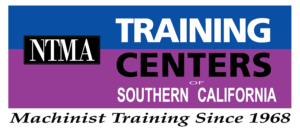
Ever since the Industrial Revolution took place over a century ago, the career field for Machining has constantly been expanding and evolving as technology has created an immensity of new roles and opportunities. Here are just some of the potential roles that are typical in the realm of Machining:
- CNC Operator – Setting up and running CNC Machines is usually what our students at NTMA will go into right after they graduate. After learning the skills necessary to advance to different roles, there are an array of different opportunities that present themselves once someone is skilled at operating a CNC Mill or Lathe.
- CNC Programmer/CAM Engineer – If you’re skilled with programs such as MasterCAM, being a CNC Programmer is a viable option. Having a good understanding of Geometrical Dimension & Tolerancing (GD&T), Blueprint Reading, and CAM programs are typically the skills needed for these types of roles.
- Specialty Machinist – Since CNC Machining spans many industry verticals, there are an immense number of roles one can go after with the right skillsets. Here are just a few:
- Multi-Axis Machinist – Being able to operate live tooling on a Multi-Axis lathe, or 5 Axis machining are highly technical skillsets, all of which stem from the basic fundamentals of machining.
- Tool & Die Maker – Moldmakers and various Tool & Die shops are in need of Machinists that can machine precision molds for plastic injection molding, blow molds, and a variety of other complementary manufacturing processes.
- Manual Machinist – This is the first thing we teach our students in our 7-Month Machinist program and is the foundation for all Machining principles.
Of the roughly 11 Million open jobs (according to the Bureau of Labor Statistics), there are roughly 1 Million open Manufacturing jobs that are still available in the US. If you’ve ever been interested in gaining the necessary skills to become a Machinist in today’s market, consider reaching out to our staff at NTMA online or by calling us at 800-962-6862




